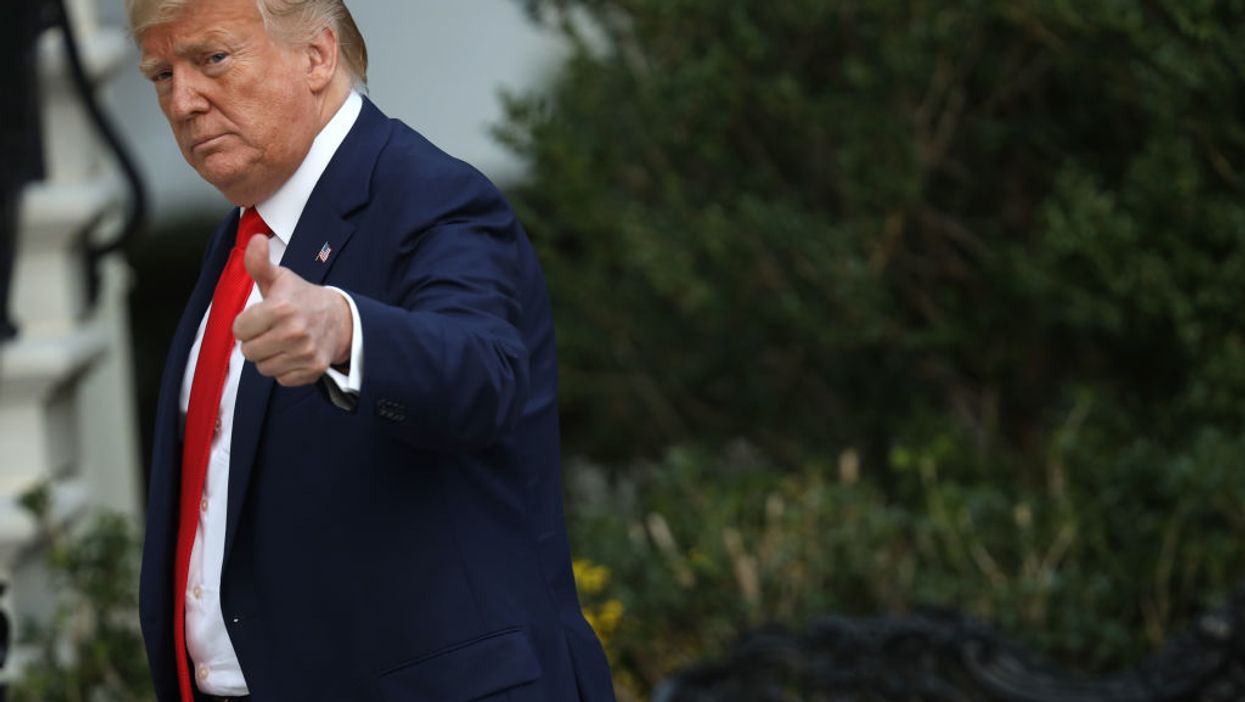
Photo by Win McNamee/Getty Images

A judicial win for Trump
The Supreme Court has green-lit a rule pushed by the Trump administration to restrict immigration to the U.S. for those who are unlikely to support themselves without using government welfare programs.
In a 5-4 ruling along ideological lines Monday, the nation's highest court cleared the way for the Trump administration to begin enforcing the so-called "public charge" rule while its merits are argued in lower courts, CBS News reports.
Under the rule, federal officials will now have more authority to deny entry to the U.S. or legal status to people who the government determines will likely rely on public assistance.
The rule updated current regulations, which determined whether or not an applicant would become a public charge based on their presumed need for cash benefits. Now, in addition to that, the criteria for determining whether or not an applicant will become a public charge will be based on non-cash benefits, as well, such as housing assistance and food stamps.
Monday's ruling sets aside a nationwide injunction placed on the rule by a federal judge in New York last summer.
The Trump administration had blasted the injunction before asking the Supreme Court to remove the hold on the rule's implementation. "It is extremely disappointing that yet another judicial ruling has blocked — on a nationwide basis — this Administration's efforts to restore integrity to the immigration system, consistent with the plain meaning and clear intent of the law," White House press secretary Stephanie Grisham said, according to the Hill.
Critics of the rule have argued that it closes the door to low-income immigrants and people of color looking for a brighter future in America. But proponents say that is an exaggeration since the rule does not apply to those seeking asylum or refugee status or escaping from human trafficking or domestic violence situations.
Arguing in favor of the rule, acting director of U.S. Citizenship and Immigration Services Ken Cuccinelli added that this type of assessment has long been a mainstay of America's immigration policy.
"For over a century, the public charge ground of inadmissibility has been part of our nation's immigration laws," he stated. "Throughout our history. Self-sufficiency has been a core tenet of the American dream. Self-reliance, industriousness, and perseverance laid the foundation of our nation and have defined generations of hardworking immigrants seeking opportunity in the United States ever since."